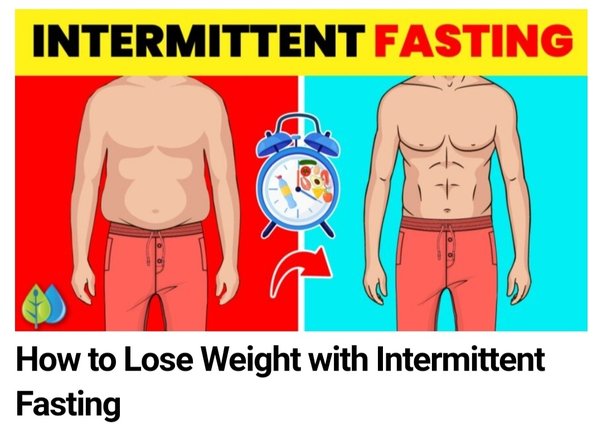The Truth of Intermittent Fasting Delivers Results in Weight Loss
Welcome to the ultimate guide to intermittent fasting and its effectiveness in weight loss. In today’s world, where fad diets come and go, intermittent fasting has gained widespread popularity for its potential to promote weight loss and improve metabolic health. But does it really deliver on its promises? Let’s dive in and uncover the truth.

Table of Contents
The Weight Loss Puzzle
In the ever-evolving quest for optimal health and physique, the pursuit of sustainable weight loss has become a tantalizing yet elusive goal for many. Amidst a sea of fad diets, quick fixes, and conflicting advice, it’s easy to feel overwhelmed and discouraged. However, what if the key to unlocking your weight loss potential lies not in deprivation or extreme measures, but in a strategic approach to when and how you nourish your body?
Unveiling Intermittent Fasting
Enter intermittent fasting, a dietary pattern that has been gaining significant traction in recent years. Unlike traditional diets that dictate what you should eat, intermittent fasting focuses on when you eat, alternating between periods of fasting and eating within a designated time frame.
At its core, intermittent fasting revolves around the concept of strategically scheduling your meals to create periods of caloric restriction, which can potentially trigger a range of metabolic processes that may support weight loss and overall health.
The Science Behind the Method
While the idea of purposefully abstaining from food for extended periods may seem counterintuitive, a growing body of scientific research suggests that intermittent fasting can offer a myriad of potential benefits beyond weight loss.
By inducing a state of ketosis, where the body burns stored fat for energy during fasting periods, intermittent fasting may enhance fat-burning capabilities. Additionally, studies have shown that this dietary approach may improve insulin sensitivity, reduce inflammation, and even promote longevity by activating cellular repair processes.
However, it’s important to note that the effectiveness of intermittent fasting can vary from individual to individual, and its long-term implications are still being explored by researchers.
Real-Life Success Stories
Beyond the scientific evidence, the power of intermittent fasting lies in the countless success stories shared by individuals who have embraced this approach and experienced transformative results.
From busy professionals who have harnessed the convenience of condensing their eating window to fit their schedules, to athletes who have leveraged the potential benefits of intermittent fasting for enhanced performance and recovery, the testimonials are as diverse as they are inspiring.
One such inspiring story comes from Jennifer Aniston, who credited intermittent fasting as a key component in her journey toward achieving her desired physique and maintaining a healthy lifestyle.
Striking the Right Balance
While intermittent fasting holds promise as a powerful tool for weight loss and overall well-being, it’s essential to approach it with a balanced and personalized approach. Like any dietary regimen, intermittent fasting may not be suitable for everyone, and it’s crucial to listen to your body’s signals and consult with a healthcare professional if you have any underlying medical conditions or concerns.
Additionally, it’s important to remember that intermittent fasting is not a license to indulge in unhealthy foods during your eating windows. Nourishing your body with a balanced, nutrient-dense diet remains paramount for achieving sustainable weight loss and optimal health.
Frequently Asked Questions: Intermittent Fasting Delivers Results in Weight Loss
Q: Is intermittent fasting safe for everyone?
A: While intermittent fasting can be a safe and effective approach for many individuals, it may not be suitable for those with certain medical conditions, such as diabetes, eating disorders, or pregnancy. It’s always best to consult with a healthcare professional before starting any new dietary regimen.
Q: Will I feel hungry during fasting periods?
A: Initially, you may experience some hunger pangs during fasting periods, but many people report that these sensations subside as their bodies adapt to the intermittent fasting schedule. Staying well-hydrated and engaging in activities to keep your mind occupied can help manage hunger.
Q: How long should I fast?
A: There are various intermittent fasting protocols, ranging from 16-hour fasts to more extended periods like alternate-day fasting. The duration and frequency of your fasts should be tailored to your individual goals, lifestyle, and preferences.
Q: Can I exercise during fasting periods?
A: Yes, you can engage in physical activity during fasting periods, but it’s essential to listen to your body and adjust the intensity accordingly. Some people find that exercising in a fasted state can enhance fat-burning potential, while others may experience dips in energy levels.
Q: Will I lose muscle mass while intermittent fasting?
A: If done correctly, intermittent fasting should not lead to significant muscle loss. Ensuring adequate protein intake during your eating windows and incorporating resistance training can help preserve and even build lean muscle mass.
As you embark on your intermittent fasting journey, remember that patience, consistency, and a willingness to adapt are key. While the path may not be linear, embracing this dietary approach with a balanced and mindful approach can potentially unlock a world of transformative benefits, both physically and mentally.